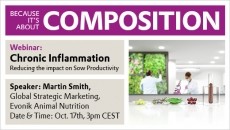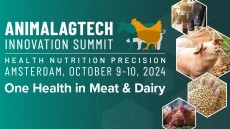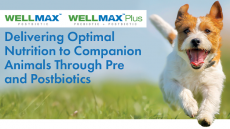How to start the piglet off well – tune in to our live webinar

FeedNavigator is running a webinar on this topic on Tuesday 27 November. You can register for it here.
The three experts we have lined up to speak have all been trying to get a deeper understanding of the factors influencing the establishment of the gut microbiota in piglets.
Francesc Molist, R&D manager, Schothorst Feed Research, has been looking at transition feeding, assessing how adapting the sow’s diet during gestation, particularly the fiber and crude protein elements, affects bacterial composition in the newborn piglet.
Just knowing about the bacterial composition in the piglet’s gut is not enough, though, he says. It is also important to understand the functionality of these bacteria, what role they play. Register now to attend.
Shah Hasan is working in technical support for Finnish feed company, Hankkija Oy, and is also a visiting researcher in the University of Helsinki. He has been exploring gut microbiota development and immune modulation in neonatal piglets.
The hypothesis of a recent paper he was involved in was that the inclusion of brewer’s yeast hydrolysate in a gestating diet would modify the hindgut microbiota of the sow and that the modifications could be associated with better colostrum yield, and immunoglobulins content. Furthermore, the team hypothesized that piglets of the sows fed a diet including the brewer’s yeast hydrolysate would have better gut microbiota colonization, possibly contributing to better piglet performance. He will talk about the results of that research during the webinar.
The focus of the latest research work of our third speaker, Nuria Canibe, who is a senior researcher at Aarhus University in Denmark, has been on Bacillus spores and how they influence the gut microbial diversity of piglets.
She and her colleagues have been investigating the effect of antibiotics and probiotics on the gut microbiota in piglets, where they hypothesized that administration of gentamicin, a broad-spectrum aminoglycoside, changes the microbial community of the gut, and that the expected negative effects of antibiotic administration are alleviated by simultaneous administration of Bacillus spp. spores.
The team has interesting insights around the administration of the probiotics to the mother during late gestation and transfer to offspring.
She will disclose the findings of that study during the webinar.
The event involves a 40-minute discussion with our panel, followed by a live Q&A for 15 minutes with the listeners, giving people the chance to get additional information from the experts.
Don't miss out - sign up for the live event.


















